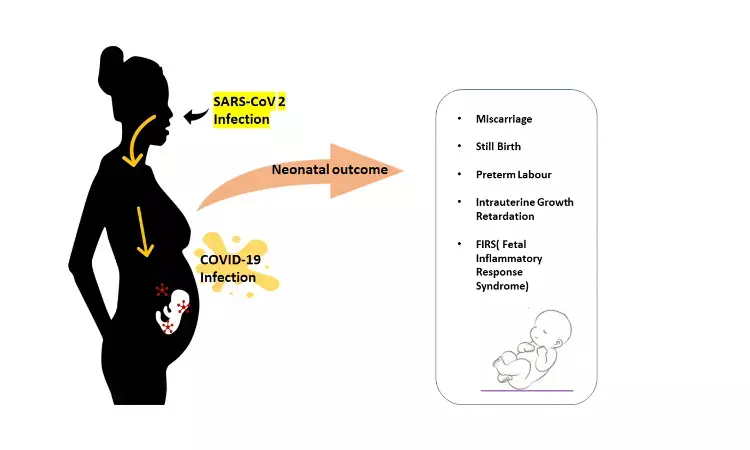- Home
- Medical news & Guidelines
- Anesthesiology
- Cardiology and CTVS
- Critical Care
- Dentistry
- Dermatology
- Diabetes and Endocrinology
- ENT
- Gastroenterology
- Medicine
- Nephrology
- Neurology
- Obstretics-Gynaecology
- Oncology
- Ophthalmology
- Orthopaedics
- Pediatrics-Neonatology
- Psychiatry
- Pulmonology
- Radiology
- Surgery
- Urology
- Laboratory Medicine
- Diet
- Nursing
- Paramedical
- Physiotherapy
- Health news
- Fact Check
- Bone Health Fact Check
- Brain Health Fact Check
- Cancer Related Fact Check
- Child Care Fact Check
- Dental and oral health fact check
- Diabetes and metabolic health fact check
- Diet and Nutrition Fact Check
- Eye and ENT Care Fact Check
- Fitness fact check
- Gut health fact check
- Heart health fact check
- Kidney health fact check
- Medical education fact check
- Men's health fact check
- Respiratory fact check
- Skin and hair care fact check
- Vaccine and Immunization fact check
- Women's health fact check
- AYUSH
- State News
- Andaman and Nicobar Islands
- Andhra Pradesh
- Arunachal Pradesh
- Assam
- Bihar
- Chandigarh
- Chattisgarh
- Dadra and Nagar Haveli
- Daman and Diu
- Delhi
- Goa
- Gujarat
- Haryana
- Himachal Pradesh
- Jammu & Kashmir
- Jharkhand
- Karnataka
- Kerala
- Ladakh
- Lakshadweep
- Madhya Pradesh
- Maharashtra
- Manipur
- Meghalaya
- Mizoram
- Nagaland
- Odisha
- Puducherry
- Punjab
- Rajasthan
- Sikkim
- Tamil Nadu
- Telangana
- Tripura
- Uttar Pradesh
- Uttrakhand
- West Bengal
- Medical Education
- Industry
Reducing pandemic-related stress in antenatal period may improve maternal and infant outcomes: JAMA

Reducing pandemic-related stress in antenatal period may improve maternal and infant outcomes suggests a new study published in the JAMA.
Antenatal stress is a significant risk factor for poor postpartum mental health. The association of pandemic-related stress with postpartum outcomes among mothers and infants is, however, less well understood.
A study was done to examine the association of antenatal COVID-19–related stress with postpartum maternal mental health and infant outcomes.
This cohort study was conducted among 318 participants in the COVID-19 Risks Across the Lifespan study, which took place in Australia, the UK, and the US. Eligible participants reported being pregnant at the first assessment wave between May 5 and September 30, 2020, and completed a follow-up assessment between October 28, 2021, and April 24, 2022.
COVID-19–related stress was assessed with the Pandemic Anxiety Scale (score range, 0-4, with higher scores indicating greater COVID-19–related stress). The 8-item Patient Health Questionnaire (score range, 0-3, with higher scores indicating more frequent symptoms of depression) was used to measure maternal depression at each time point, and the 7-item General Anxiety Disorder scale (score range, 0-3, with higher scores indicating more frequent symptoms of anxiety) was used to measure generalized anxiety at each time point. At follow-up, postpartum distress was assessed with the 10-item Postpartum Distress Measure (score range, 0-3, with higher scores indicating greater postpartum distress), and infant outcomes (negative and positive affectivity and orienting behavior) were captured with the Infant Behavior Questionnaire (score range, 1-7, with higher scores indicating that the infant exhibited that affect/behavior more frequently).
Results
The study included 318 women from Australia
Antenatal COVID-19–related stress was significantly associated with maternal postpartum distress, depression, and generalized anxiety, as well as infant negative affectivity. The findings remained consistent across a range of sensitivity analyses.
The findings of this cohort study suggest that targeting pandemic-related stressors in the antenatal period may improve maternal and infant outcomes. Pregnant individuals should be classified as a vulnerable group during pandemics and should be considered a public health priority, not only in terms of physical health but also mental health.
Reference:
Schweizer S, Andrews JL, Grunewald K, Kumle L, COVID-19 Risks Across the Lifespan (CORAL) Consortium. Association of Antenatal COVID-19–Related Stress With Postpartum Maternal Mental Health and Negative Affectivity in Infants. JAMA Netw Open. 2023;6(3):e232969. doi:10.1001/jamanetworkopen.2023.2969
Dr. Shravani Dali has completed her BDS from Pravara institute of medical sciences, loni. Following which she extensively worked in the healthcare sector for 2+ years. She has been actively involved in writing blogs in field of health and wellness. Currently she is pursuing her Masters of public health-health administration from Tata institute of social sciences. She can be contacted at editorial@medicaldialogues.in.
Dr Kamal Kant Kohli-MBBS, DTCD- a chest specialist with more than 30 years of practice and a flair for writing clinical articles, Dr Kamal Kant Kohli joined Medical Dialogues as a Chief Editor of Medical News. Besides writing articles, as an editor, he proofreads and verifies all the medical content published on Medical Dialogues including those coming from journals, studies,medical conferences,guidelines etc. Email: drkohli@medicaldialogues.in. Contact no. 011-43720751


